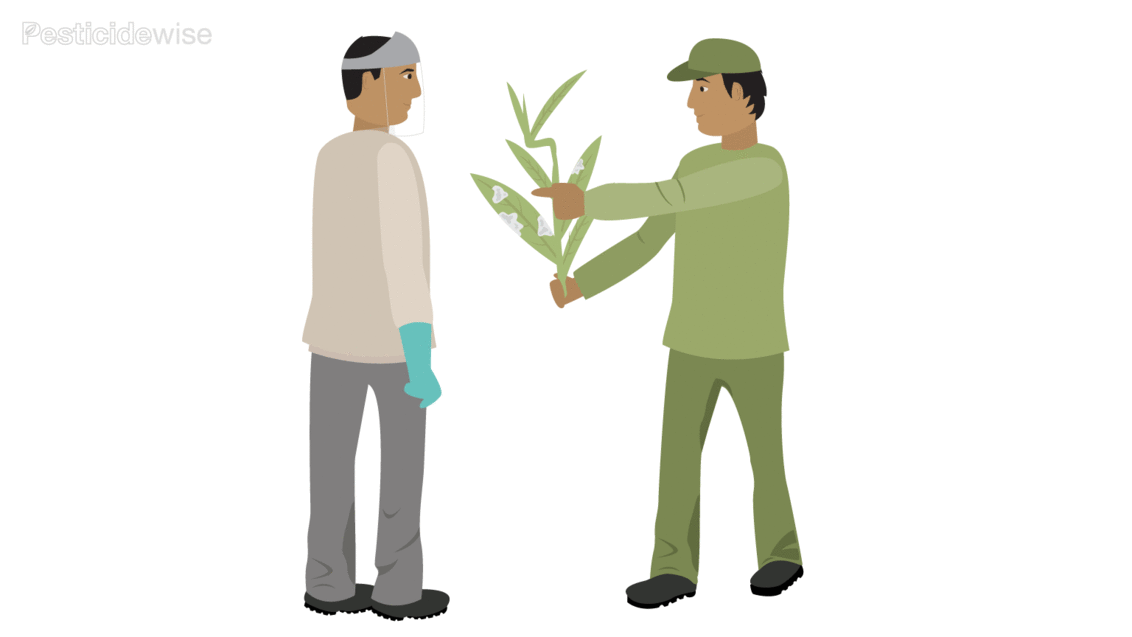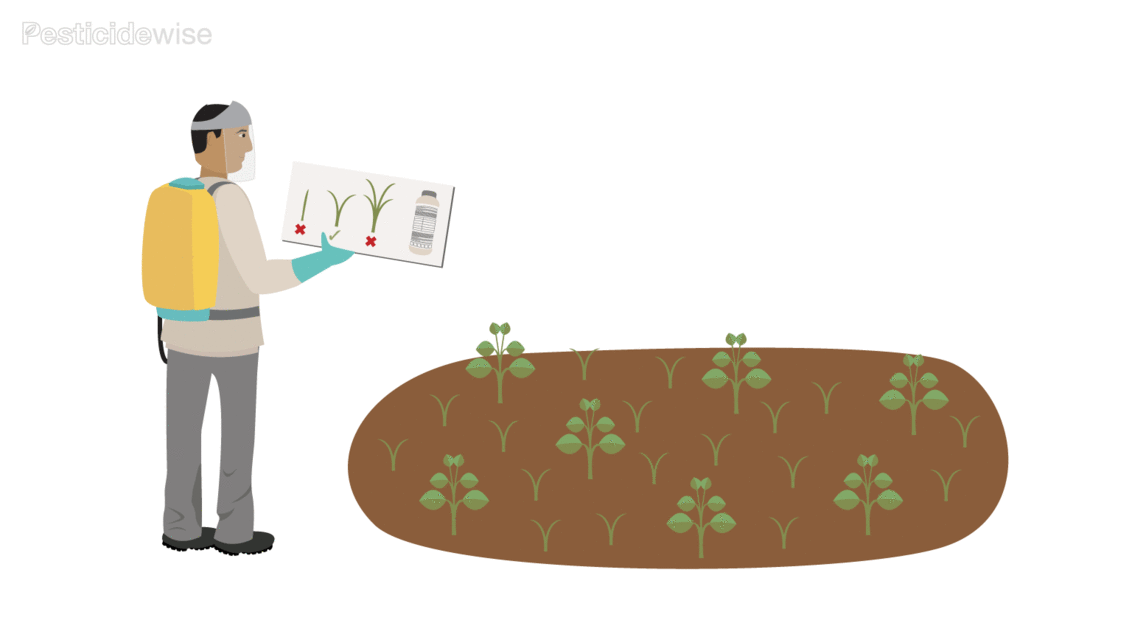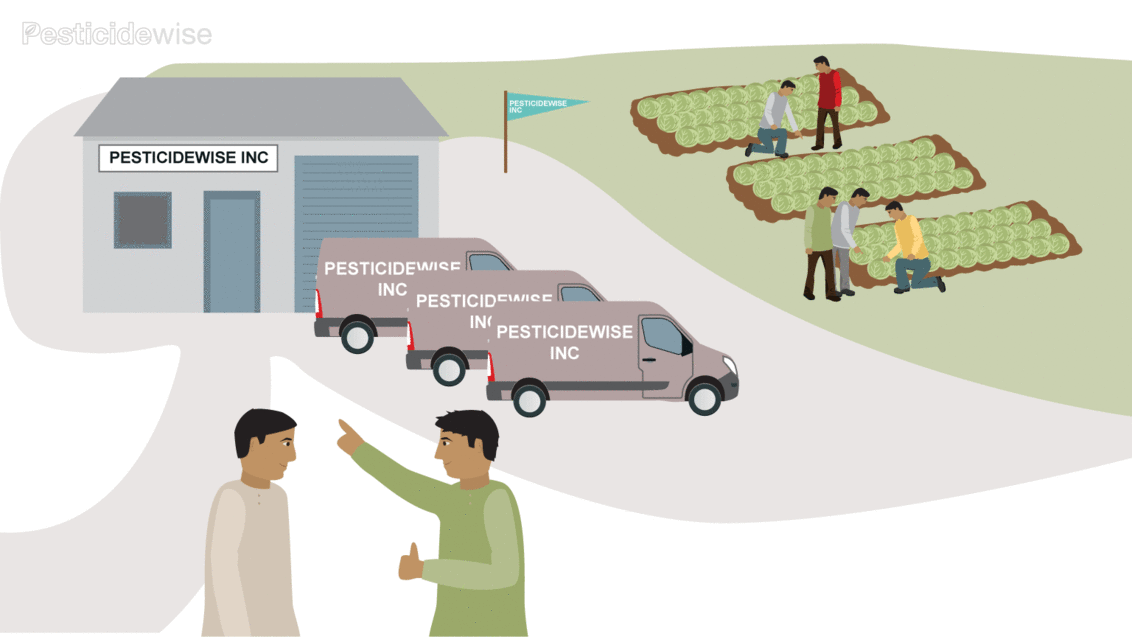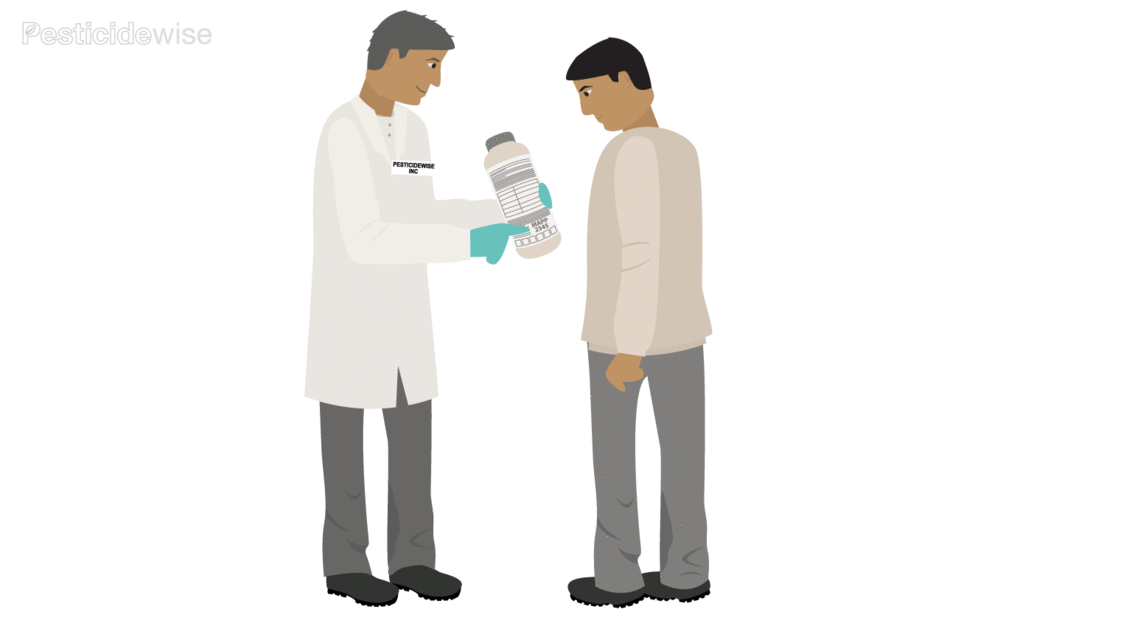Buying pesticides
Buying pesticides
Seek expert advice to find the best way to manage the pest problem in your crop. If you are advised to buy pesticides be prepared and buy with care. Use the buying checklist to help you decide if you can transport, store and use this pesticide safely.
Be prepared
add
remove

You may need to seek advice when buying pesticides. Ask your local expert for advice on how best to control the pest, weed or disease that is troubling your crop. Also ask how to prevent the problem in the future.
If the control method chosen is a pesticide, you will need to be fully prepared to purchase and use a pesticide product. Use this list to discuss your pest problem with your local expert and to confirm your needs with your pesticide supplier (if different). Your local expert can help you find out:
- The trade name (e.g. TOUCHDOWN FORTE HITECH® , KARATE ZEON® etc.) or the name of the active ingredient of the pesticide (e.g. glyphosate, lambda cyhalothrin, thiamethoxam, etc.).
- The type of pesticide (e.g. herbicide, fungicide, insecticide).
- The formulation of the pesticide (e.g. emulsifiable concentrates, water dispersible granules, soluble concentrates, etc.).
- The mode of action of the pesticide (e.g. systemic, contact, or a mixture between systemic and contact).
- The pesticide dose and the spray mix volume to be used in your crop to control your pest.
- The appropriate sprayer, nozzles and spraying techniques you should be using and what level of skill you need to use them.
- The need for the use of other products with your pesticide (e.g. wetters, adjuvants, stickers or safener) or after using the pesticide product (e.g. tank cleaners or deactivators).

- The best timing for using the pesticide according to the stage in the pest's life cycle, the growth stage of the crop, the harvest interval (withholding or re-entry period), and the weather conditions.
- The personal protective equipment (PPE) for mixing and applying your pesticide.
- The safety measures of transportation and storage of your pesticide product.
Buy pesticides with care
add
remove

Only buy pesticides from a trusted pesticide supplier. Discuss the issues above and the advice you received from your local expert with your pesticide supplier (if different) to make sure that you are making the right choices. Consider the points below when buying a pesticide product.

- Make sure that the recommended pesticide is registered for your use in your country, i.e. that it is legal for you to use the pesticide on your crop on your farm. Fake pesticides are being sold by organized criminals: http://www.illegalpesticides.eu/about/.
- Think about any risks to water, your neighbors, livestock, and plant life, and consider issues of potential pest resistance.
- Only buy whole, sealed packs of product in the right size for your planned use. Sometimes it might be safer to buy, transport and use 5 x 1 litre packs rather than 1 x 5 litre pack.
- Make sure that you only buy as much pesticide as you need to use this time. Ask your local expert, or use the spray mix calculator, to help you find the amount of pesticide product that you need for this spraying task.
- Check that you can secure the quantity of pesticide you are buying. Remember that the less pesticide you store, the less potential risk there is to your family and neighbors, and to your land from pesticide spills.
- Check that the pack and the label are in good condition, and that you will be able to use the product before the expiry date. If the pack is damaged, leaks or if part of the label is missing or cannot be read, then do not buy that pack. Make sure the lid has not been tampered with and, if in doubt, check the secondary foil seal. Never buy products that have been poured into a different container.
- Ask if the supplier can transport the product to your storage location at a time when it can be checked in and secured by you. Ask if any unused, sealed pesticide can be returned.
Fake Pesticides
add
remove
Fake pesticides are not properly made or packed, use poor quality materials, can contain very dangerous by-products and are unlikely to contain the right chemicals in the right quantities.
Using a fake product could mean that:
- You fail to control the pest.
- You damage the crop.
- You put the consumers of your product at risk of harm from residues of unknown chemicals at unknown doses.
- You use the wrong personal protective equipment and so are not properly protected from exposure to the pesticide.
- The chemical pollutes your land because you are using the wrong dose of the wrong pesticide.
Fake pesticides are a threat to you, your family, the consumers of your crop and the land that you spray. Only buy pesticides from a trusted dealer. In some countries pesticide dealers need to have an official permit to sell pesticides. If in doubt, ask to see the dealer's permit.
Check the integrity of the label. Look to see if the product is made by a trusted company and look for the maker's name and the batch number. In some cases, the fakes are very hard to spot so be careful!